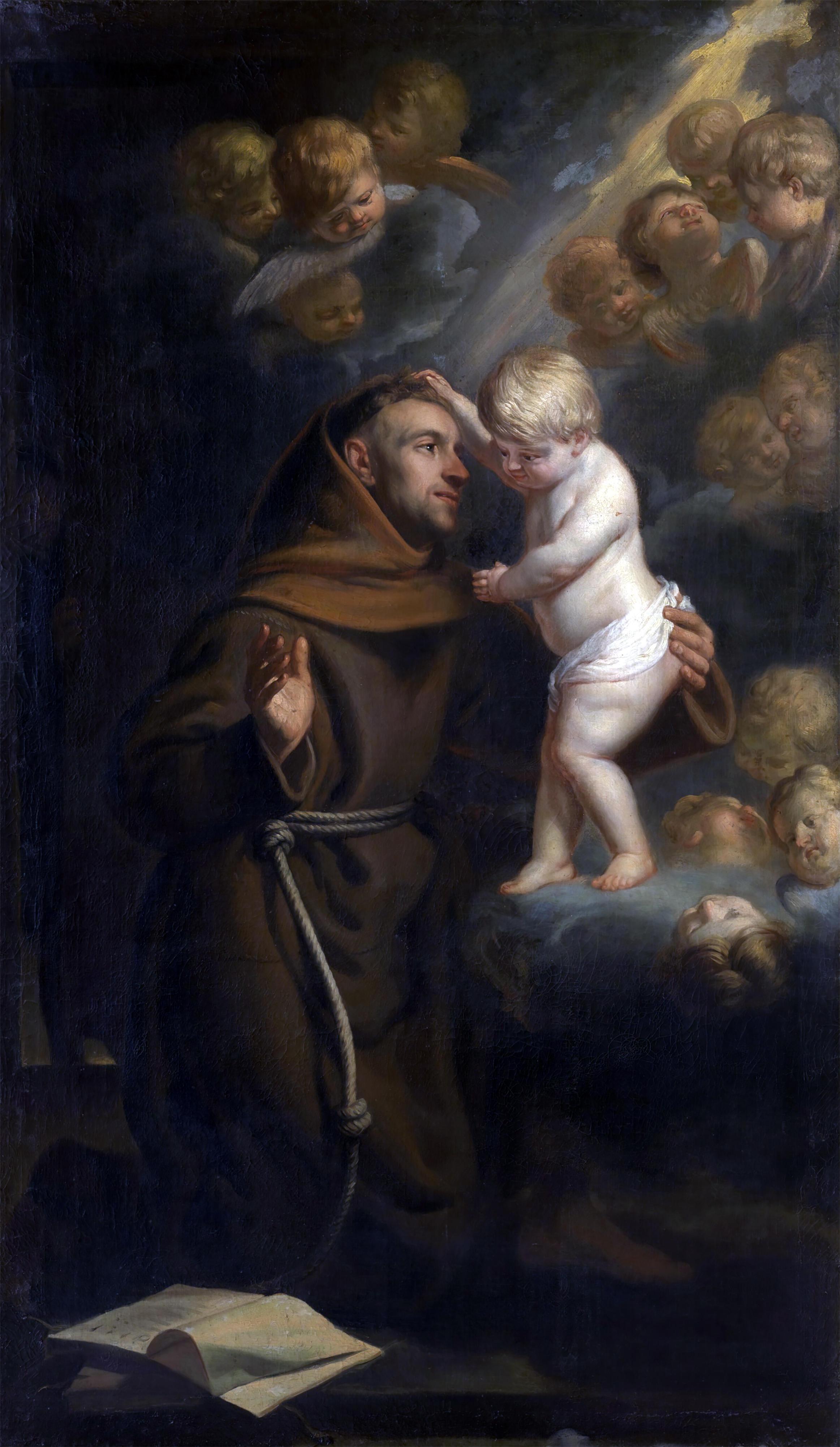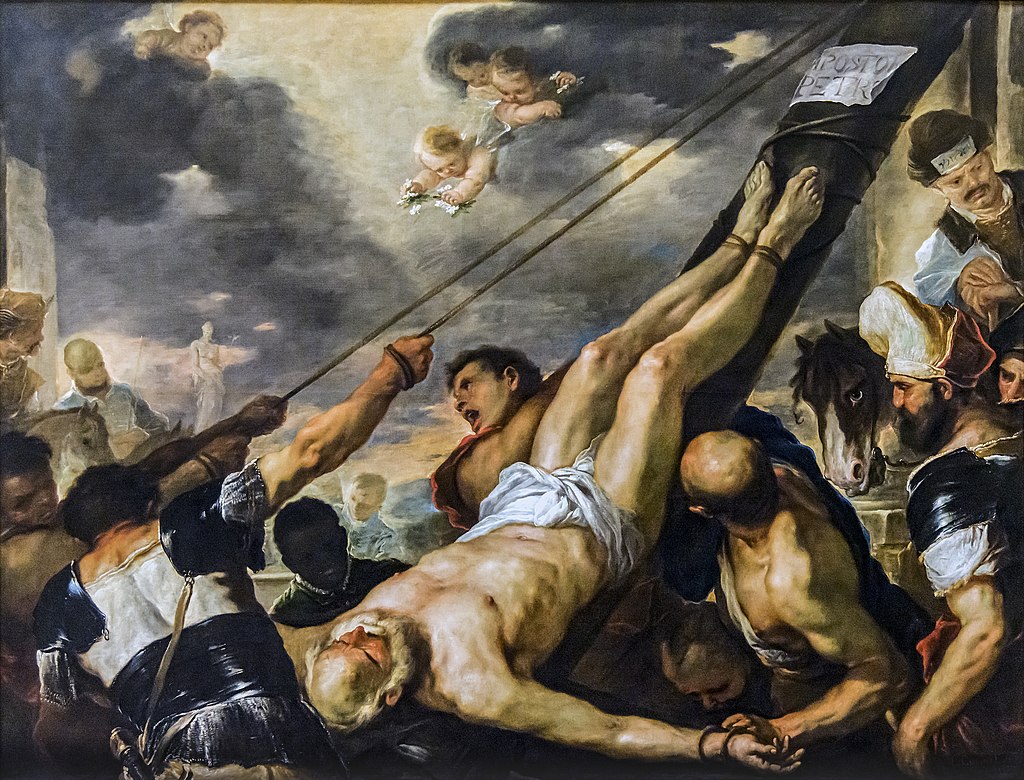Love my enemies? Pray for those who persecute me? Be perfect? That’s crazy talk.
Every time I hear the passage from today’s Gospel, a thought that goes through my brain for a split second that says, “This is crazy talk.” Not because it is Jesus asking this of us, but because it all seems so impossible. “Lord, you know humanity. You know my sinful self. I can’t possibly live up to this.” And yet, Jesus still asks us.
What if we could be perfect? What if we could love as God loves? If He’s asking, it must be possible.
As Christians living after the Crucifixion and Resurrection of Jesus, we have an advantage that His followers during His life on earth did not. We know the entire story from the beginning. We know how the story ends. The only way that what Christ asks of us makes any sense is in light of His dying and rising.
The Cross is the answer to impossible things. Jesus showed us what to do, to carry our crosses and embrace them fully. In the mystery of suffering, we rise above human thinking to the mind of God.
Today, let’s ask for the grace to see and understand not as we see, but as God sees. Let us ask for the gift to think as God thinks, and the courage to carry our crosses well so that they might transform our lives.
¿Amar a mis enemigos? ¿Orar por los que me persiguen? ¿Ser perfecto? Que locura.
Cada vez que escucho el pasaje del Evangelio de hoy, un pensamiento me pasa por la cabeza por una fracción de segundo y me dice: “Esto es una locura”. No porque sea Jesús quien nos lo pida, sino porque todo parece tan imposible. “Señor, tú conoces la humanidad. Tú conoces mi ser pecador. No puedo vivir a la altura de esto”. Y, sin embargo, Jesús nos sigue pidiendo.
¿Qué pasaría si pudiéramos ser perfectos? ¿Qué pasaría si pudiéramos amar como Dios ama? Si Él nos lo pide, debe ser posible.
Como cristianos que vivimos después de la Crucifixión y Resurrección de Jesús, tenemos una ventaja que Sus seguidores durante Su vida en la tierra no tuvieron. Conocemos toda la historia desde el principio. Sabemos cómo termina la historia. La única forma en que lo que Cristo nos pide tiene algún sentido es a la luz de Su muerte y resurrección.
La Cruz es la respuesta a las cosas imposibles. Jesús nos mostró qué hacer: cargar con nuestras cruces y abrazarlas plenamente. En el misterio del sufrimiento, nos elevamos por encima del pensamiento humano para llegar a la mente de Dios.
Hoy, pidamos la gracia de ver y comprender no como nosotros vemos, sino como Dios ve. Pidamos el don de pensar como Dios piensa y el valor de cargar bien nuestras cruces para que puedan transformar nuestras vidas.
 Mary Thissen is a St. Louis native living in East Central Illinois with her husband and children. She is blessed with twin boys Earthside and four children now living in Heaven. When she is not working as a healthcare data analyst or caring for her boys, she enjoys studying and writing about the Catholic faith and ministering to women who are suffering through miscarriage or infertility. You can connect with Mary on Instagram @waitingonmiracles.
Mary Thissen is a St. Louis native living in East Central Illinois with her husband and children. She is blessed with twin boys Earthside and four children now living in Heaven. When she is not working as a healthcare data analyst or caring for her boys, she enjoys studying and writing about the Catholic faith and ministering to women who are suffering through miscarriage or infertility. You can connect with Mary on Instagram @waitingonmiracles.
Feature Image Credit: reenablack, pixabay.com/photos/prayer-bible-christian-folded-hands-1308663/
The views and opinions expressed in the Inspiration Daily blog are solely those of the original authors and contributors. These views and opinions do not necessarily represent those of Diocesan, the Diocesan staff, or other contributors to this blog.


 Maria Riley is a passionate Catholic author and speaker who loves volunteering or playing board games when she’s not writing or mom-ing around with her four daughters. Her award-winning Catholic children’s chapter book series,
Maria Riley is a passionate Catholic author and speaker who loves volunteering or playing board games when she’s not writing or mom-ing around with her four daughters. Her award-winning Catholic children’s chapter book series, 
 Former NPS Park Ranger, Catholic educator, and Youth Minister, Melissa Lucca now spends her days evangelizing family and neighbors as a stay-at-home mom. She holds an MA in Theology from the Augustine Institute and pursues personal study in her spare time. Melissa loves Ignatian Spirituality, Mother Mary, and rock climbing. If you don’t hear her and her kiddo laughing at home, then they are probably out on an adventure!
Former NPS Park Ranger, Catholic educator, and Youth Minister, Melissa Lucca now spends her days evangelizing family and neighbors as a stay-at-home mom. She holds an MA in Theology from the Augustine Institute and pursues personal study in her spare time. Melissa loves Ignatian Spirituality, Mother Mary, and rock climbing. If you don’t hear her and her kiddo laughing at home, then they are probably out on an adventure!
 Heather Orlowski and her husband are busy parents of three little girls. The Catholic Church holds a special place in her heart and in her entire life. She attended Catholic schools from Kindergarten through college. She graduated from Aquinas College with a degree in Elementary/Special Education. Catholic Education is very important to her and she now teaches 1st and 2nd grades at St. Therese Catholic School. In her free time, she loves creating memories with her family and watching her little girls play soccer.
Heather Orlowski and her husband are busy parents of three little girls. The Catholic Church holds a special place in her heart and in her entire life. She attended Catholic schools from Kindergarten through college. She graduated from Aquinas College with a degree in Elementary/Special Education. Catholic Education is very important to her and she now teaches 1st and 2nd grades at St. Therese Catholic School. In her free time, she loves creating memories with her family and watching her little girls play soccer. 


 Kathryn Mulderink, MA, is married to Robert, Station Manager for Holy Family Radio. Together they have seven children (including Father Rob), and eleven grandchildren. She is President of the local community of Secular Discalced Carmelites and has published five books and many articles. Over the last 30 years, she has worked as a teacher, headmistress, catechist, Pastoral Associate, and DRE, and as a writer and voice talent for Catholic Radio. Currently, she serves the Church by writing and speaking, and by collaborating with various parishes and to lead others to encounter Christ and engage their faith. Her website is
Kathryn Mulderink, MA, is married to Robert, Station Manager for Holy Family Radio. Together they have seven children (including Father Rob), and eleven grandchildren. She is President of the local community of Secular Discalced Carmelites and has published five books and many articles. Over the last 30 years, she has worked as a teacher, headmistress, catechist, Pastoral Associate, and DRE, and as a writer and voice talent for Catholic Radio. Currently, she serves the Church by writing and speaking, and by collaborating with various parishes and to lead others to encounter Christ and engage their faith. Her website is 
 Tami Urcia is a midwestern gal from a large Catholic family. As a young adulthood she was a missionary in Mexico, where she studied theology and philosophy. After returning stateside bilingual, she gained a variety of work experience, traveled extensively and finished her Bachelor’s Degree at Brescia University. She loves organizing and simplifying things, watching her children play sports, deep conversations with close family and friends and finding unique ways to brighten others’ day with Christ’s love. She works full time at Diocesan in the Software Department and manages the Inspiration Daily reflections. She is also a contributing writer on
Tami Urcia is a midwestern gal from a large Catholic family. As a young adulthood she was a missionary in Mexico, where she studied theology and philosophy. After returning stateside bilingual, she gained a variety of work experience, traveled extensively and finished her Bachelor’s Degree at Brescia University. She loves organizing and simplifying things, watching her children play sports, deep conversations with close family and friends and finding unique ways to brighten others’ day with Christ’s love. She works full time at Diocesan in the Software Department and manages the Inspiration Daily reflections. She is also a contributing writer on 
 Christine Arata is a San Francisco, California native. She lives a few blocks away from the ocean and a park. She finds nature inspiring. Her cat brings her comfort. She loves being creative not only with her writing but with almost everything, including her home cooking. Her studies in the Catholic faith are ongoing. In 2019, when she discovered St. Hildegard of Bingen was underrepresented by Catholics, she found a purpose. Her latest website, St. Hildegard’s Wisdom features blog posts about all of that:
Christine Arata is a San Francisco, California native. She lives a few blocks away from the ocean and a park. She finds nature inspiring. Her cat brings her comfort. She loves being creative not only with her writing but with almost everything, including her home cooking. Her studies in the Catholic faith are ongoing. In 2019, when she discovered St. Hildegard of Bingen was underrepresented by Catholics, she found a purpose. Her latest website, St. Hildegard’s Wisdom features blog posts about all of that: 




 Allison Gingras (
Allison Gingras (
 David Dashiell is a freelance author and editor in the Nashville, Tennessee area. He has three children, a degree in theology, and enjoys writing about philosophy, theology, culture, music, and comedy. You can find his personal blog, Serious Daydreams, on
David Dashiell is a freelance author and editor in the Nashville, Tennessee area. He has three children, a degree in theology, and enjoys writing about philosophy, theology, culture, music, and comedy. You can find his personal blog, Serious Daydreams, on 